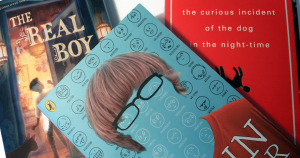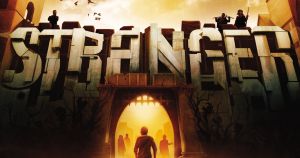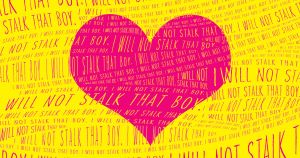
Review: Rules by Cynthia Lord
This is a book about a girl with an autistic brother. The autistic brother is crucial to the plot, but her actual brother is really more of a plot device than anything else.

This is a book about a girl with an autistic brother. The autistic brother is crucial to the plot, but her actual brother is really more of a plot device than anything else.

Audiobooks are an essential part of making reading as accessible as possible, so we’re excited to sit down with marketing manager Jennifer Rubins and head of production Dan Zitt and talk about the behind-the-scenes process of audiobooks.

Here is a key insight to creating realistic autistic characters: We do not do the visibly autistic things we do because of “autism,” full stop. Like non-autistic people, we are responding to our experiences of the world. Those experiences simply differ from those of non-autistic people.

An exceptionalist narrative might, at first glance, seem like a positive or even empowering one. But, as it always goes when it comes to depictions of disability, the situation is much more complicated than that-

The world does its best to remove our autism from the mainstream narrative of life, hiding either it or us whenever possible. In the world of fiction, we often see these same attempts.

We take a moment to look back at our favorite posts and reads of the year, and to look ahead to the substantial changes 2017 will bring at Disability in Kidlit.

Parker Grant is a complex, flawed character whose blindness was handled realistically; a big part of her life, but not the only part of her life. This is definitely a book I will be recommending.

Stranger represents a case where verisimilitude—the appearance of plausibility—succeeds where a more realistic representation of disability might have failed.

The book deals in a thought-provoking way with many issues of human interaction; readers’ enjoyment will depend on their tolerance for abuse themes and for protagonists driven to terrible behavior without fully understanding how terrible it is.

Some people call OCD a doubting disease. Corey Ann Haydu infuses her story with the back-and-forth, pulsing presence of this doubt, resulting in a first-person, insider’s account of what the condition feels like for many.